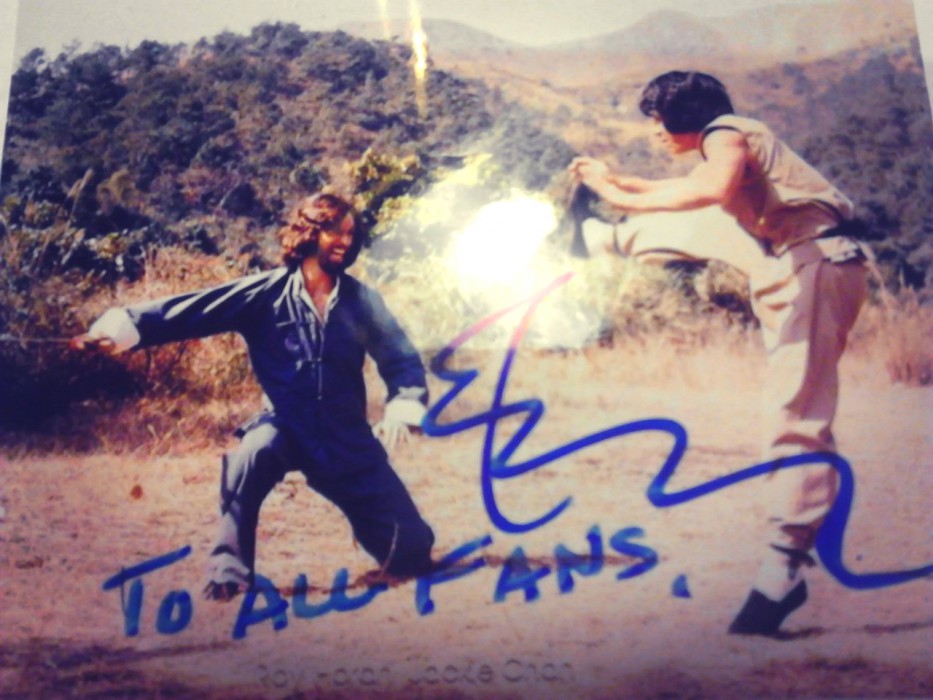
Рой Хоран - тот самый колоритный "бородатый белый боец", известный любителям кунг-фу фильмов, прежде всего, по работе с Джеки Чаном в картине "Змея в тени орла". Если бы Рой не попал в Гонконг, кто знает, как сложилась бы судьба самого Джеки.
Перевод на русский язык интервью с Роем Хораном
ЧАСТЬ 1:
Булат Низамов: Приветствую, меня зовут Булат. Сегодня я в Гонконге. Для меня большая честь и удовольствие встретиться сегодня с Роем. Яне могу с уверенностью утверждать, но, возможно, если бы Рой не попал в Гонконг, мы не знали сейчас Джеки Чана. Кто знает, что могло бы случиться...
Рой Хоран: Ха-ха!
Булат: Сейчас вы профессор в Гонконгском политехническом университете, верно?
Рой: Я сейчас помощник профессора. То есть я по-прежнему работаю в университете, но я запустил свою собственную компанию.
Б: Вы не только актёр и мастер боевых искусств, вы ещё занимаетесь научной деятельностью и развиваете себя. По-моему, это великолепный пример того, каких высот может достичь человек, мужчина. Поэтому если у вас есть, чем поделиться с молодым поколением, то мы будем очень рады услышать.
Не могли бы вы, пожалуйста, рассказать вкратце о том, как попали в кино и как вы получили те роли, с актёрством и всем прочим?
Р: Я попал в фильм под названием «Связь через нефритовый флакон» (Snuff Bottle Connection, 1977). Главным злодеем там был Хван Джанг Ли (Hwang Jang Lee). Ещё до того, как мы вместе снялись в этом фильме, у нас с ним сложились некоторые отношения: он обучал меня тхэквондо.
А как к этому всё пришло? В том смысле: вы путешествовали или у вас были там дела какие-то?
Где, в Тайване? Ох, у этого есть предыстория.
Расскажите.
Собственно, как к этому пришло. Я оказался в Японии, где изучал боевые искусства.
Я имею в виду самую изначальную причину. Почему вы туда отправились?
В Тайвань?
В Тайвань или Японию. Изучать боевые искусства?
У этого тоже есть предыстория! Если в общем объяснить, то я исследователь по натуре, мне крайне любопытна жизнь — какая она и что значит. Мне любопытен предел человеческий возможностей и мой собственный предел тоже. Много-много лет я провёл за университетской деятельностью, то есть моё прошлое связано с наукой и ещё с литературой. Поэтому, когда я закончил обучаться, решил для себя, что хочу делать нечто иное, нечто такое, что было бы содержательно. Мне нужно было накопить какие-то деньги, поэтому я работал в Альбертском университете как научный сотрудник в сфере археологии. Накопил денег и купил каноэ. К тому времени я познакомился с одним израильтянином, который хотел присоединиться ко мне. Вы шли на каноэ по реке Хей вплоть до Большого Невольничьего озера, а направлялись мы в сторону Северного Ледовитого океана. Мы гребли. У нас заняло, думаю, дней десять, недели две, около того, чтобы достичь реки Маккензи. По пути случилось немало приключений. Затем мы вошли в индейское поселение, известное как Форт-Гуд-Хоп (Fort Good Hope).
Сколько лет вам было?
Думаю, то было весеннее таяние льда 1972 года.
Почему я на это всё пошёл. Когда вы проводите жизнь в университете, вся ваша действительность и представление о мире — это книги. То есть вы можете от книг перейти к работе, стать банкиром, учёным и т.д. Но для себя я решил, что хочу встретить жизнь лицом к лицу.
Итак, я отправился в Арктику. Остановился в Форт-Гуд-Хоп. Форт-Гуд-Хоп — это индейское поселение. Это около семи-восьми сотен километров, если двигаться по Маккензи. А затем мы... Конечно же, индейцы невзлюбили нас поначалу, как белых.
Но разве вы не взяли себе в сопровождение местного, канадского индейца?
Нет.
То есть вас было двое и всё?
Ага, мы вдвоём и всё.
Вы использовали карту? Как вы понимали, куда двигаться?
У нас была речная карта...
Наверное, много было сюрпризов, с речной картой-то.
Конечно. У нас... у меня вообще много приключений в жизни было.
И температура ещё.
И температура тоже. Итак. Мы прибыли в Форт-Гуд-Хоп. И, короче говоря, маленькие индейцы, дети кидали камни в нашу палатку. Поэтому мы решили направить их энергию в полезное русло — принялись учить их бейсболу. Ну и, конечно же, родители следили за тем, как белые парни учат их детей некой игре. Им стало любопытно, они позвали нас к себе, мы вместе выпили чай, обменялись некоторой пищей. Затем они спрашивают меня, что я собираюсь делать дальше. Я сказал, что хочу отправиться жить невозделанную местность, в дикие условия. Мой друг, конечно, не разделял моего желания. Он хотел дойти до Ледовитого океана и улететь. А это означало конец путешествию и (вдвое меньше приключений). Они надо мной посмеялись. Однако нашёлся тот, кто решил принять вызов — взять меня с собой в дикие земли на время сезона ловли. Итак, поселившись в Арктике, я пережил много-много приключений за отрезок в примерно два—два с половиной года. И то было большой удачей, ведь они научили меня секретам своего уклада жизни.
Как то питаться свежим мясом?
Да, всякое дикое мясо и рыба. Несколько раз я оказывался на волоске от смерти. Дикие приключения со мной происходили, о чём мы возможно поговорим чуть попозже. Я, как бы, хочу придерживаться темы.
Разумеется.
Итак, всё это, эти два с половиной года сделали меня очень крепким парнем. Чтобы вы поняли: нам приходилось идти на снегоступах любое расстояние — от тридцати до ста миль в день, это на снегоступах. Нам приходилось таскать дерево. Было такое, что я тащил и по четыре дерева на плечах, и мне нужно было протащить их на расстояние пятисот метров или больше через кустарник. Нам приходилось использовать топоры, рубить всякое разное. Приходилось заниматься ловлей и охотой. Ну и вы сами упомянули о температуре.
Подозреваю, что где-то ниже минус сорока? По Цельсию.
Ну, рекордная отметка в тех краях была минус шестьдесят по Фаренгейту.
А по Цельсию это сколько?
Цельсий... около пятидесяти шести, минус.
Пятьдесят шесть... то есть если мочиться, то...
Ага, струя замерзала налету, точно. Плюс ко всему, потому что я парень, — а парни там выходят сами по себе надолго, — много времени я проводил один в диких условиях и мы спали на снегу. Даже в тех температурах человек может научиться, как выжить, без всяких там иглу, вы выучиваетесь выживать на...
Прямо на снегу.
Да, прямо на снегу.
Без костра? Без укрытия?
Нет, костёр, разумеется, вы разожжёте, но укрытия никакого нет.
Ага.
Нет, нет. Только костёр и ночлег на снегу. В общем, для жизни в таких условиях, в такой температуре, для охоты вам требуется следующее: первое, быть сильным; второе, быть очень-очень быстрым на реакцию, ведь там звери. Поэтому я, наверное, был в лучшей форме, чем когда-либо в своей жизни. Олимпийский уровень. Помню, в первый год я рассказывал об Олимпийских играх (Джо Нарива Биска), парню, с которым мы отправились в дикую местность в первый год. Рассказывал о марафонских забегах. Он говорит: «Надо же, они бегают. Насколько далеко?» Говорю: «Ну, около двадцати шести миль». Он смотрит на меня: «Двадцать шесть миль — и всё?» Двадцать шесть миль — это как в туалет выйти и обратно. Ха-ха! Он смеялся, ему показалось это столь забавным. И он говорит: «Мы делаем двадцать шесть миль, пробегаем по снегу на снегоступах».
Вот это разница.
Ага, то был совершенно иной образ существования. Но, как я уже сказал, мне повезло, потому что меня приняли и научили своему укладу. А насколько я понял, как они мне сказали, я был единственным белым во всей их истории, кто когда-либо жил такой же жизнью, как и они.
Они ведь говорят по-английски?
Немного по-английски, немного по-французски, и, разумеется, на своём родном наречии. Туда к ним приходили и антропологи, и другие люди; проводили несколько недель в лагере, вместе с ними.
Ага, понятно. Получается, это прямо-таки тренировочный лагерь, лучше, чем в армии.
Угу, гораздо суровее, чем армия. Я был в отлично форме. И затем, когда в таком состоянии я отправился в Японию, решил...
Но зачем вы туда отправились? На чемпионат или куда?
Нет.
Просто «а почему бы и нет»?
Сначала я побывал в Арктике. А отправился я туда потому, что, будучи студентом, вы задаётесь вопросами о том, что будете делать со своей жизнью. У меня развита интуиция, и иногда я предчувствую будущее. Так, например, я сидел в университетской библиотеке, где на столе стоял большой глобус, а я его крутил, пытаясь понять, какое место на этой планете выглядит или кажется наиболее интересным. И я выбрал точку, которая была белой, в Северо-Западных территориях Канады. И там река Маккензи несколько изгибалась. Много лет спустя — у меня не было подробной карты — я обнаружил, что Форт-Гуд-Хоп находится прямо на этом изгибе. То есть я действительно там очутился. Когда я вернулся из Арктики в Эдмонтон, Канада, мой израильский друг встретился со мной; когда я пошёл в дикую местность, он вернулся на юг.
То есть вы были один?
Да, я был один. ...он сказал: «Ну и какое у нас следующее приключение?» И тогда я у меня возникло предчувствие, я ответил: «Мы отправимся в Японию». А он спросил: «А что там в Японии?» Я ответил: «Ну, я вижу образ нас двоих, как мы катаемся туда-сюда на очень-очень большом роллс-ройсе, вот, в Японии, и весьма себе хорошо живём теперь». Парень он делового склада, и поэтому говорит мне: «Ладно, я подписываюсь, это лучше Арктики!» Этот парень до того изучал Сатори (Satori), стиль каратэ.
Сатори, понятно.
Я посмотрел на него в движении. И мне были интересны боевые искусства. До этого я посмотрел фильм с Брюсом Ли. Поэтому подумал и сказал: «Да, отправляемся в Японию, и возможно научимся там боевым искусствам». Когда мы прибыли в Токио, там же никто в те времена не знал английского.
В какие времена?
Что-то около 74-го года. Итак, мы пошли в студию (Гогани Ама Гучи) и поглядели на Годзю-рю, ещё один из японских стилей. Однако, у меня не возникло ощущения, что нам следует оставаться в Токио, кто-то в то же время упомянул Киото. И я подумал: «Хорошо, поедем-ка в Киото». Я отправился туда и записался в школу Сейбукан (Seibukan Academy).
А разве они были открыты для западных людей?
Ну, думаю, они восприняли это за возможность, глава школы увидел возможность заиметь парочку парней с Запада у себя. Там много человек училось.
Итак, в школе Сейбукан я достиг коричневого пояса. Но мне там не было особо интересно, потому что я, в общем-то, справлялся с каждым противником, даже с учителями, и никто меня не мог побороть. Как только я научился нескольким приёмам, то уже никого не мог найти, кто бы меня мог учить, вот так. Я мог разучивать технику, но в том, что касается, реального боя... помните, я же очень крепкий парень, ха-ха!
Именно так!
Поэтому, что там было делать? Затем мы пошли и начали обучаться... постойте, мой друг прекратил. Он перестал заниматься боевыми искусствами, вовлёкшись в бизнес в Японии. Ну а я продолжил в Сёриндзи-кэмпо (Shorinji Kempo). Сёриндзи-кэмпо — это дзэн-буддистский стиль. Сёриндзи-кэмпо на японском значит «Шаолинский храм». Это духовное направление в Японии, но в то же время они учат боевым искусствам. Истоки Шаолиньские, китайские. Парень по имени Досин Со (Doshin So) учился этому в Китае. В общем, мне Сёриндзи-кэмпо понравилось, потому что в нём был дзэн, то есть философская часть, и не было вот этого «иди и убей их», скорее этот стиль больше относится к самообороне, объединив кэмпо с айкидо, в плане движения и прочих вещей. То есть это была вовсе не убойная штука, но мне она нравилась, мне приятна была атмосфера, нравилось тренироваться в храме и тому подобные вещи.
Да, здорово.
Было весело. Итак, я получал свой чёрный пояс. Для этого вы должны пройти, прежде всего, письменный экзамен, а затем драться. Сначала перед вами ставят чёрные пояса первого уровня, покуда вы не проиграете, вы продолжаете состязаться.
Сколько всего их? Сколько человек?
Думаю, всего нас было около шести, тогдашних кандидатов на чёрный пояс, пять или шесть. Большинство остановилось на втором примерно уровне чёрных поясов. То есть большинство тех парней проиграли на первом уровне. Я перешёл на второй уровень, поборол на нём всех. Затем я перешёл к третьему уровню чёрных поясов, поборол их всех. Начинал уже уставать. Затем они поставили против меня чёрные пояса четвёртого уровня, и их всех я поборол. И, наконец, были двое пятого уровня.
(Смеется) Первый парень пятого уровня всерьёз пытался меня завалить, ведь это было столь большой потерей лица.
О да, действительно, разумеется...
Ему было со мной очень тяжко.
До сих пор, наверное, помнит.
А другой пятого уровня подумал, что я уставший и слишком разозлённый. Поэтому, наверное, он просто решил: «Ладно, давай просто поиграем». В итоге у нас был шуточный бой. До меня дошло, что он сбавил силу, поэтому мы дрались понарошку.
ЧАСТЬ 2:
Итак. Я смог продержаться в боях. А потом уже выяснилось, что вроде как я набрал высший результат на дзэн-буддистском экзамене, по сравнению с другими, там были иностранцы: парень из Швеции, из Канады, что-то вроде того. Вот, я набрал высший балл на философском экзамене и весьма хорошо проявил себя по боевой части, в вольном бою. Поэтому учитель захотел, чтобы я отправился в Соединённые Штаты и основал там, в Америке, филиал школы. На что я ему ответил: «Ваша честь, я ценю ваше предложение и действительно люблю этот стиль, но в жизни я хотел бы заняться другими вещами, так что давайте просто останемся на связи». И он вручил мне хорошую книжку, подписанную Со Досином. Они действительно отсылают книги Со Досину, чтобы он подписывал их. Мой мастер тоже подписался, его звали Морикава-сэнсэй (Morikawa Sensei), он тоже оставил свою подпись. Получился приятный подарок, напоминающий о Сёриндзи-кэмпо. После этого я оказался на Тайване. То был следующий этап моего путешествия, Тайвань. А мой друг остался в Японии, занявшись предпринимательством. Оказавшись на Тайване, я познакомился с парнем по имени Ларри Тэн (Larry Tan). По-видимому, он теперь в Нью-Йорке, продолжает обучать кунг-фу, чем занимается уже, наверное, много лет; он тренирует звёзд кино и музыки и тому подобных людей, знаменитостей. В Тайване я остался с Ларри, мне пришлось до некоторой степени начинать осваивать китайский, ведь и здесь никто не владел английским. А Ларри учил меня северошаолиньскому ушу, стилю Тигра.
Ок...
Итак, я веселился тем, что изучал этот новый для себя принцип движения, вместо менее прямого японского подхода к движению, оно округлое, что ли. Мне это казалось достаточно интересным. И мне нравилась суровость стиля Тигра. Весьма кровожадный стиль. Наверное, один из наиболее жестоких животных стилей. Но возможно это как раз одна из моих сторон, ха-ха! Однажды Ларри сказал: «Пошли-ка, в качестве чего-то новенького, опробуем тебя в кино». По его словам в том фильме было несколько иностранцев. Я ответил, что не очень-то заинтересован в кино.
А как он пришёл в кино?
Нет, у него просто были знакомые из тех, кто играл в том фильме.
А, понял.
Когда я был в Японии и мы с другом занимались каратэ, Той Продакшэн (Toei Company -東映株式会社 Tōei Kabushiki-gaisha) вышли на нас, чтобы узнать, не хотели бы мы сняться в одном из их фильмов. Я не хотел. Не хотел в таком принимать участие, не был заинтересован в кино. Однако мой товарищ засветился в одном из фильмов с мастером Ямасита Тадаси. Небольшая роль. У меня же не было интереса.
Потом Тайвань?
Да, итак, Тайвань. Мы побывали на съёмках фильма. После к моему другу, он говорил по-китайски (путунхуа), подошёл продюсер и спросил: «Твой приятель умеет драться?» Конечно же, я умею драться. «Спроси у него, согласится ли он быть побитым двойником Брюса Ли». Ларри мне передал это, на что я спросил: «С чего бы мне этим заниматься?» Ларри сказал: «Ну, они тебе заплатят» — «Сколько он мне даст?» Он мне дал некоторую сумму, а я про себя подумал, «тэк-с», жизнь в Тайване тогда была достаточно дешёвой.
Так сколько за роль?
Р: Ну, я бы не стал называть это ролью, меня просто должны были поколотить.
А, что-то вроде каскадёра?
Угу, что-то вроде того, просто побыть битым. Думаю, то было около тысячи тайванских долларов.
Сколько это?
Тысяча тайванских долларов — немного. Около пятидесяти долларов США. Но с точки зрения цен на еду и жизнь, на эту сумму в Тайване можно было прожить, наверное, целый месяц.
Понятно. Неплохо.
Поэтому я счёл это предложение выгодным. Подумал, что останусь здесь подольше, и не придётся тратить резерв. Меня поколотили в фильме. Немного времени спустя продюсер связывается с Ларри и говорит: «Пожалуйста, позови сюда своего приятеля. Хочу знать, согласится ли он на роль, в которой нужно будет говорить». А я говорю: «Так ведь по сюжету я уже мёртв!»
В том же фильме? (Смеется)
То есть я спрашиваю: «Как такое возможно?» Он отвечает: «Ну, аудитория — китайцы, разницы они не заметят. Мы просто тебя несколько переоденем». Я говорю: «Ну, ладно». Переоденут, и всё. Я снялся в одной сцене, в ней нужно было говорить. После чего я подумал, что вот и конец фильма. Мне за это заплатили дополнительные деньги, я был доволен.
Больше заработок, верно.
Ага, больше заработок. Я подумал: «Ладно». В детстве мне приходилось быть на сцене. Из меня был не особый актёр, но зато у меня было представление, что такое игра на сцене. В общем, спустя дней десять он возвращается и говорит Ларри: «Не хочет ли твой друг сыграть плохого парня в этом фильме?» А я про себя думаю: «Что это за сценарий такой?» Ха-ха! Они же что-то совершенно беспорядочное пишут. Они добились того, что играл в сцене драки. И мне это далось с большим трудом. Ведь, когда кто-то замахивается и двигает конечностями в моём направлении, моя первая реакция — сразить его.
М-да, кино и жизнь несколько отличаются.
Угу, отличаются. В кино нельзя никого бить по-настоящему, поэтому дистанцию и скорость нужно держать иначе, нужно делать всё чётко по науке, ну и т.д. Мне это было незнакомо. Поэтому я с большим трудом старался справиться с этой ролью. Несмотря ни на что, фильм оказался успешным, как позже выяснилось. К нашему превеликому удивлению, ха-ха! Но я уже тогда находился в Австралии.
Снова в диких местах?
Да, в необжитых районах материка. Но это совсем другая история, про Австралию. Я буду придерживаться темы боевых искусств. Хотя и в Австралии тоже приключилась история с ними связанная. Но мы к этому вернёмся в какой-нибудь другой раз. Итак, (Лянти Ду) (Liang-tee Toe) позвал меня назад в Тайвань, чтобы сняться в ещё одном его фильме. Он не смог вытянуть этот новый фильм, но как раз в то время у него дома остановился Хван Джанг Ли. И я частенько приходил туда, к Хвану Джанг Ли. Хван Джанг Ли лишь очень ограниченно говорил на китайском и совсем не говорил на английском, поэтому мы общались на языке жестов. Он пробовал освоить немножко английского, мы оба пробовали освоить немножко китайского, а также рисовали и находили другие способы общения. Изначально мы обсуждали в основном только боевые искусства. И я понял, что этот парень — просто гений. Ведь в прошлом я изучал физику, поэтому понял, что он говорил о биофизике, о биомеханике движения тела. Разумеется, меня это заинтересовало. И я даже спросил его: «Ты вообще учишь людей чему-нибудь?» Он ответил: «Да нет». Однажды он учил какого-то парня в Корее и, конечно, учил кого-то, когда находился во Вьетнаме.
Он к тому времени уже выиграл чемпионат по тхэквондо?
Понятия не имею, выиграл ли он чемпионат. Но впоследствии Хван Джанг Ли стал большим человеком в мире тхэквондо. Вероятно, я даже слегка причастен к этому, вероятно кино к этому слегка причастно. В общем, он занимался тренировками во Вьетнаме, он входил в отделение Тигра во Вьетнаме. Конечно же, они там использовали тхэквондо в серьёзных целях. Меня это всё заинтересовало, и я спросил: «А не научишь ли меня некоторым таким движениям?» И он ответил: «Да, научу». Ну и потом, собственно, он стал меня тренировать. Это продолжалось какое-то время. Пока мы не получили одну работёнку, уже не от Лянти Ду, а от его знакомого, Ли Ман-Ю (Lee Man-Yiu). Вот так мы снялись в фильме «Связь через нефритовый флакон». А Юань Хэпин (Yuen Wo Ping) был нашим хореографом по боевым искусствам. Так что мне довелось познакомиться и драться с Юанем Хэпином, что тоже было тем ещё весельем. Фильм был снят и выпущен в свет.
Это был 1978 год, верно?
77-й год.
Ах да, 77-й.
Всё подошло к тому, что на руках у меня был билет на самолёт обратно в Канаду.
Но вы ведь изначально из США?
Из США, да. Но, знаете, в США я не возвращался много-много-много лет после всего. Итак, в руках у меня был билет, я должен был лететь в Канаду, возможно отправился бы в Ванкувер или даже в Арктику — я не определился. В те времена я был рюкзачником; собрал свой рюкзак от Kelti и приготовился к вылету, который должен был состояться, думаю, следующим утром или поздним утром, что-то вроде того. И вдруг мне звонит Хван Джанг Ли и говорит: «Эй, белый, приходи!» — «Куда?» — «Отель Хилтон!» — «Зачем?» — «Гонконгский продюсер хочет видеть тебя!»
Я спрашиваю: «Но зачем?» А он просто: «Хм!» Из уважения к Хвану Джанг Ли, я пошёл. То была последняя моя ночь в Тайване. Таким образом, в Хилтоне я познакомился с У Сыюанем (Ng See-yuen).
Но разве вы уже не были знакомы? По фильму «Связь через нефритовый флакон».
Ну да, я однажды с ним столкнулся, когда он был вместе с Ли Ман-Ю, когда Ли Ман-Ю нанимал меня. Думаю, в первый раз мы встретились потому, что уже тогда У Сыюань обсуждал с Ли Ман-Ю возможность задействовать меня в фильме, т.к. прошлый фильм оказался успешным, а это значит, что я... как это сказать?.. оставил след на экранах.
Засветился?
Засветился... появился на экранах, — вот оно верное слово. Наверное, вот так они рассуждали. Так или иначе, я пришёл к У Сыюаню в отель и спрашиваю: «В чём, собственно, дело?». А он отвечает: «Подо мной дистрибьюция фильма „Связь через нефритовый флакон“ в Гонконге, и я тут решил устроить рекламный трюк, чтобы продвинуть его». Я: «Хорошо». Он говорит, что трюк заключается в следующем: в газетах они написали, дескать, Хван Джанг Ли может убить человека меньше, чем за две минуты; то есть бросили вызов, который может быть принят кем угодно из любого уголка Азии; и что они собираются инсценировать бой насмерть. Он добавил, что было достаточное количество желающих и что: «Мы выбрали одного парня, что-то вроде всеазиатского чемпиона в полноконтактном рукопашном бою».
Это незаконно, верно?
Незаконно. Я ему задал этот вопрос: «Это ведь незаконно?» Он говорит: «Мы снимем это как часть документального фильма Golden Harvest Studio». Тогда я посмотрел на Хвана и спрашиваю: «Хван, ты за это берёшься?» Хван отвечает: «Да, конечно».
«Мол, без проблем».
Ага, его это совершенно не пугало. Тогда я спросил: «Ладно, ну а я-то вам зачем?» Так. На что он ответил: «Ты вроде бы был учеником Хван Джанг Ли?» Я говорю: «Ну да». Он: «Так вот, я хочу, чтобы с тем парнем сначала сразился ты». Я удивлённо: «Что?» И спрашиваю: «Зачем вам это?»
И тут до меня внезапно доходит, что мною можно пожертвовать. Мною можно пожертвовать! А кроме того, это позволило бы Хван Джанг Ли посмотреть, как мы дерёмся. Иными словами, он бы подстраховался. Знаете, такой вот риск-менеджмент. И я спрашиваю: «Что, действительно дойдёт до чего-то серьёзного?» Он отвечает: «Вероятно, что нет, но нам следует быть готовыми к такому развитию событий». И я спрашиваю: «Что же получу с этого я?» А я им до этого рассказал, что следующим утром улетаю.
Угу, билет теряется.
Билет теряется. Он говорит: «Ладно, купим тебе другой билет». Ладно. И добавляет: «Ну и если ты примешь моё предложение, то возможно я тебя позову в свой следующий фильм». И я вот стою и думаю, что это самое дерьмовое предложение, которое мне когда-либо доводилось слышать: никакой оплаты; если я выживу, то возможно меня позовут на роль; а если не выживу, то ни роли не будет, ни билета.
Но вы крепкий парень!
Да, нужно помнить, что я жил в Арктике с индейцами!
Именно так.
А ещё у меня было непомерное эго.
То есть «на пацана» взяли.
Ага, что-то вроде: «Ладно, нужно прикончить какого-то парня». На самом деле, не думаю, что я бы его убил, потому что до сих пор внутри себя не чувствую такой способности. Но вероятно я бы его покалечил, если бы оказался в такой ситуации, что пришлось бы с ним драться. Я сказал У Сыюаню: «Ладно, замётано». Хван Джанг Ли был чрезвычайно рад, поскольку, как я предполагаю, он хотел, чтобы я остался в Азии вместе с ним. Что-то у него было на уме о наших с ним взаимоотношениях.
Товарищи, команда...
Да, товарищи или что-то ещё, но он не хотел меня отпускать. Итак, следующее, что я помню: я лечу на самолёте в Гонконг. Конечно же, поединка насмерть так и не случился. Хотя мы и готовы были. А не случился потому, что единственное, что могло нас тогда остановить, — это донос в полицию; мы не доносили, но со стороны того парня — жена соперника пожаловалась. И мы пришли на место, чтобы приступить к бою, а там было много полицейский, ещё и триадовцев. Потому что, как оказалось, тот парень был связан с Триадой, соперник наш.
Вот дела.
В общем. С боем насмерть всё закончилось нормально. Фильм «Связь через нефритовый флакон» хорошо показал себя на рынке. Хван Джанг Ли добился того, чтобы я остался, и мы вместе тренировались, делали всякие сумасшедшие вещи, в смысле, практиковали боевые искусства. И вдруг однажды У Сыюань приглашает меня к себе в офис и говорит: «Тут у меня фильм, в котором я собираюсь снять нового парнишку».
Теперь я понимаю, откуда взялось это сокращение «Нг», откуда оно на улицах, хе-хе...
Ну да, У Сыюань (Ng See-yuen), он же Ng. Людям трудно произнести У ([Ng]), поэтому его именем стало просто NG. В общем, он говорит: «У нас есть новый парнишка, и мы собираемся снимать фильм. Я бы хотел дать тебе роль»...
Автор и переводчик интервью: Булат Низамов
Специально для JC Russian Club
Метки: Джеки Чан, Рой Хоран, Хван Джан-ли



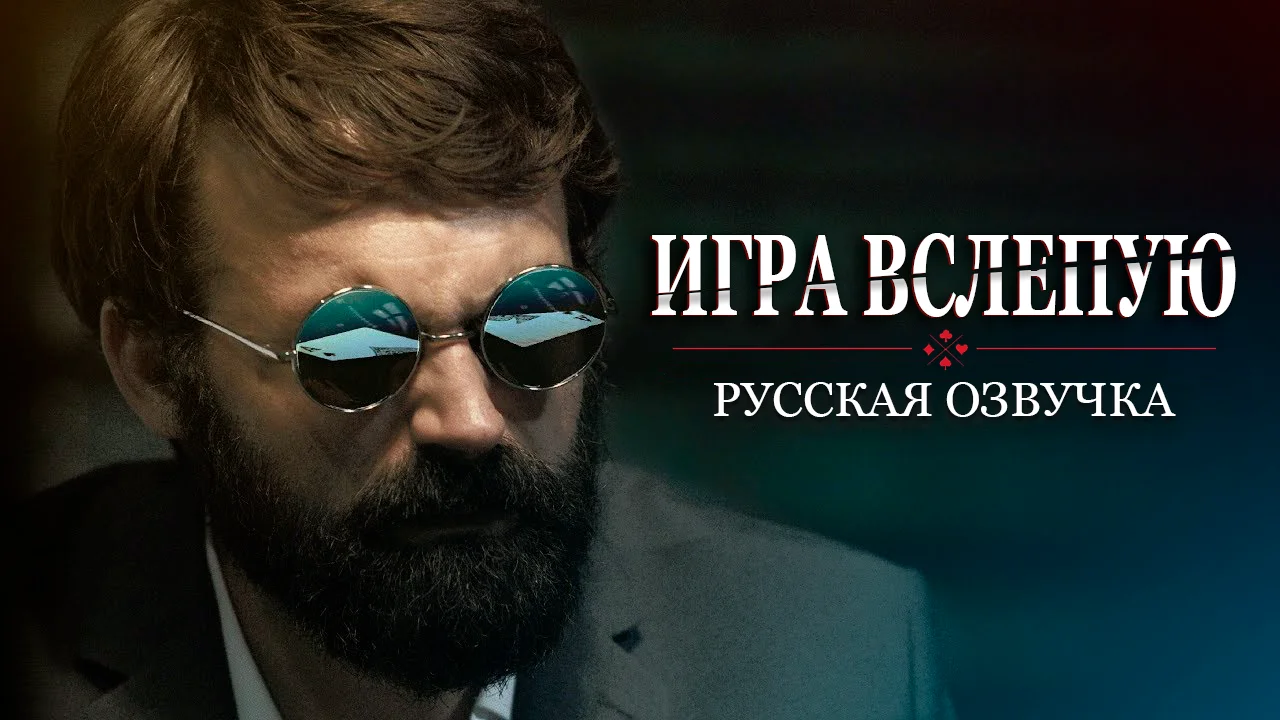
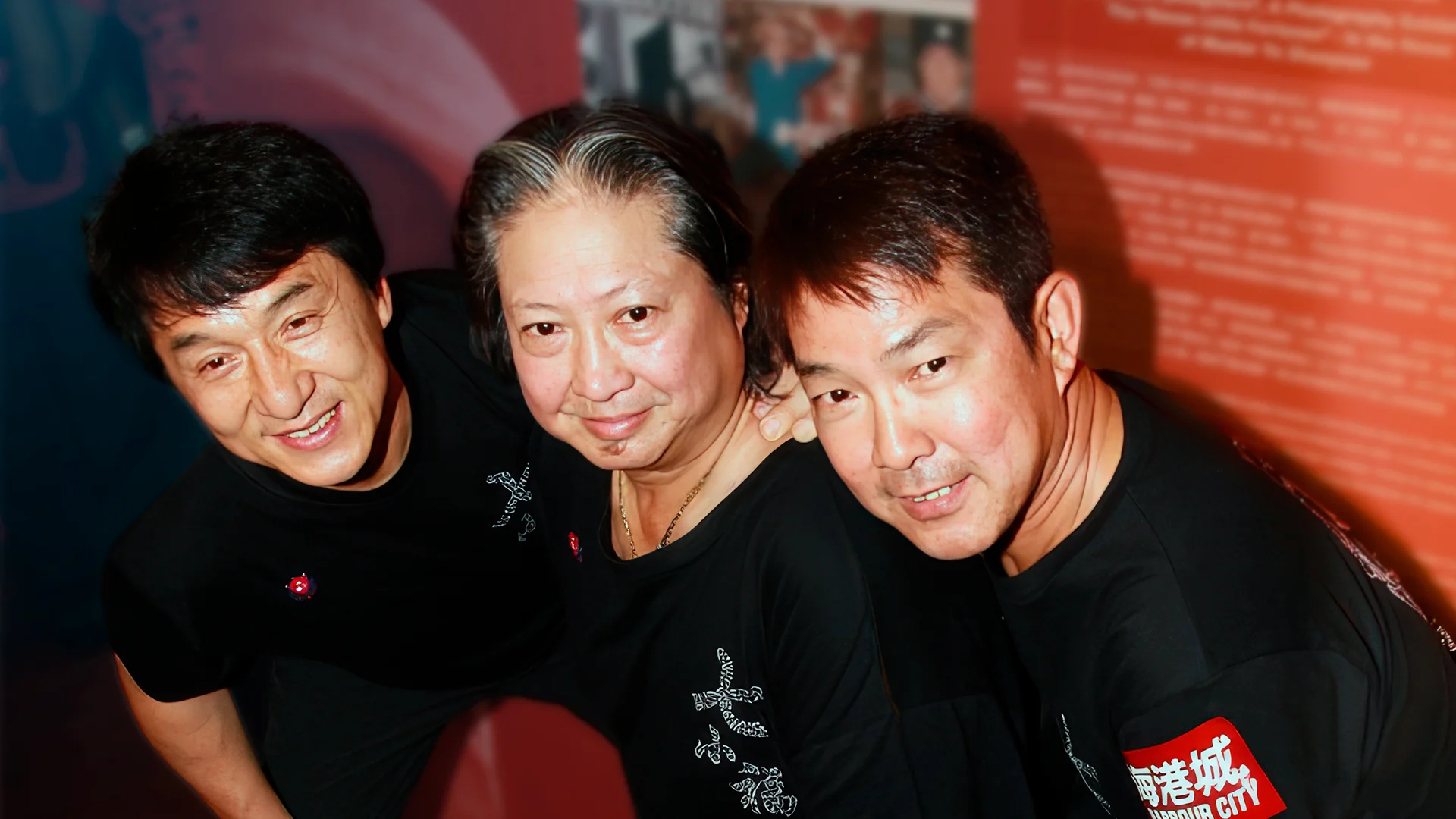
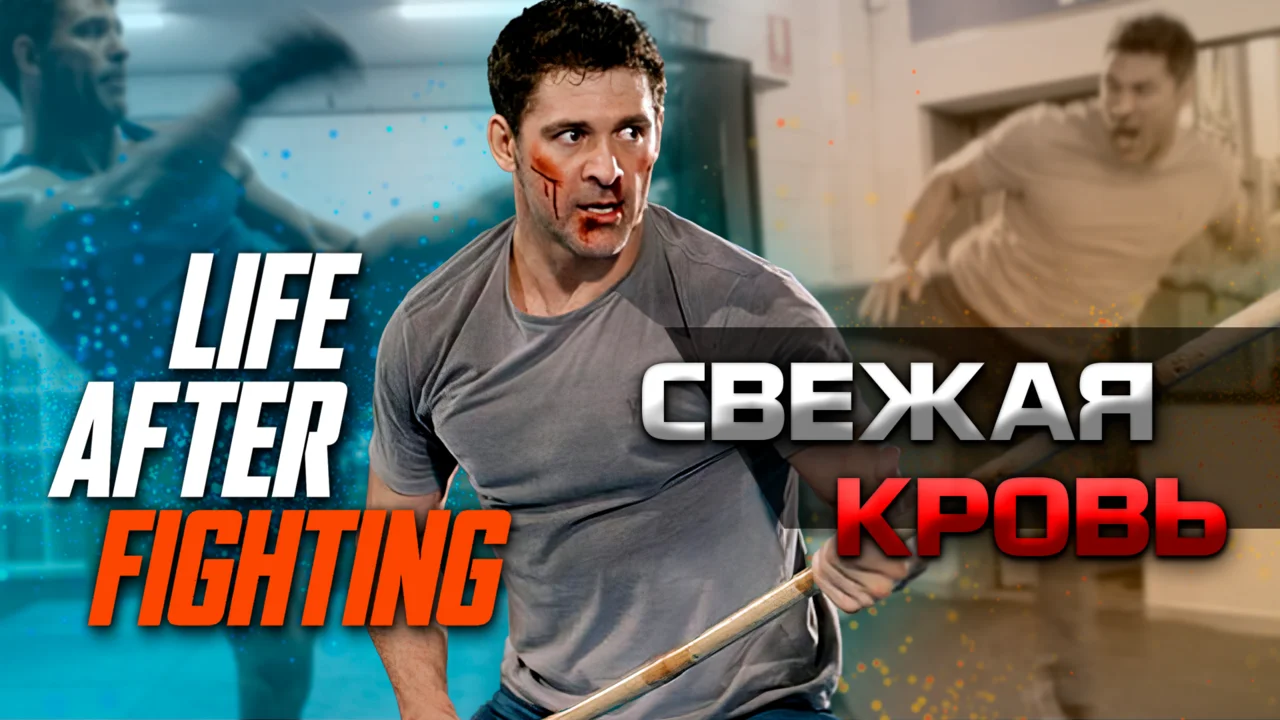
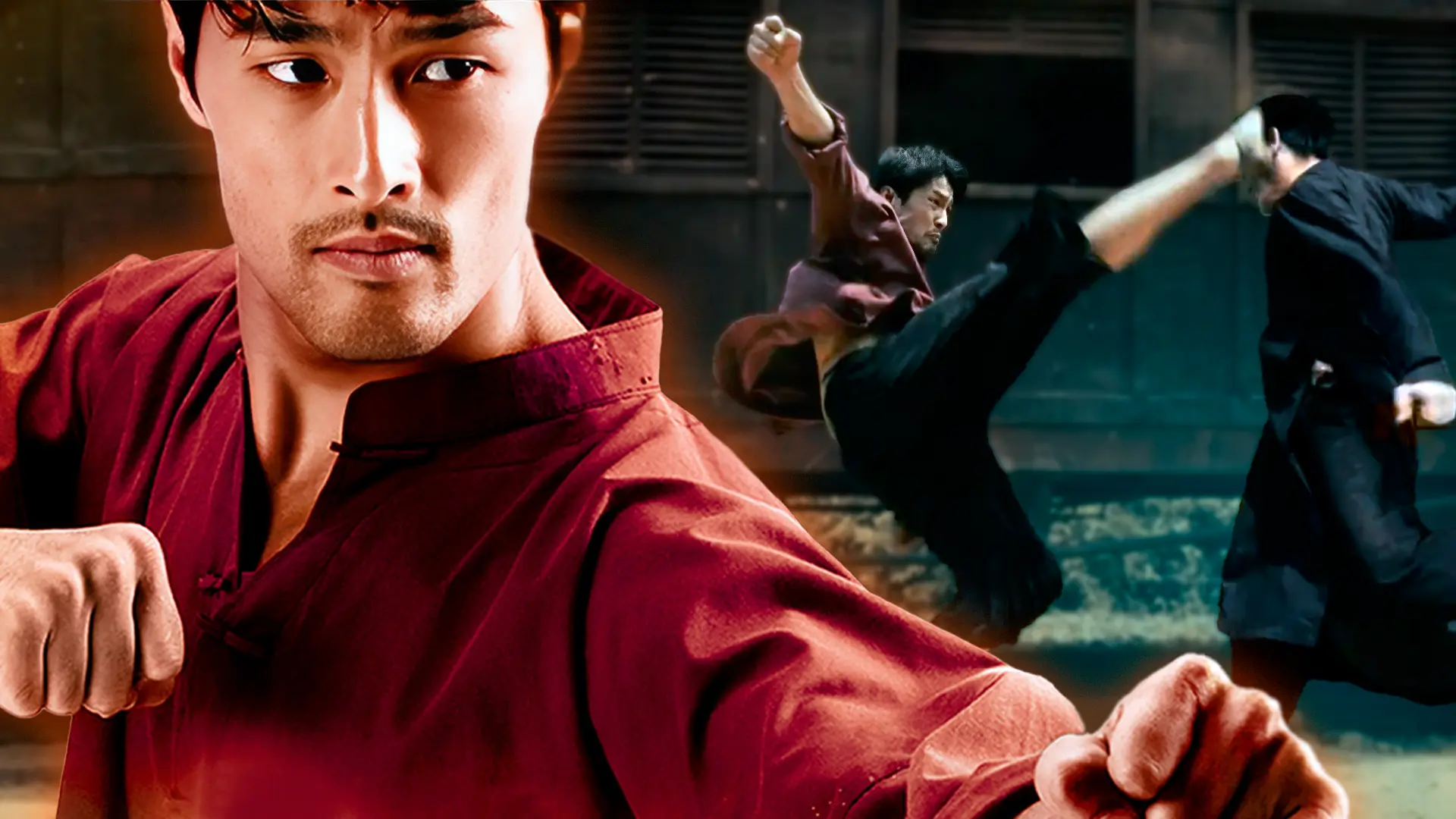
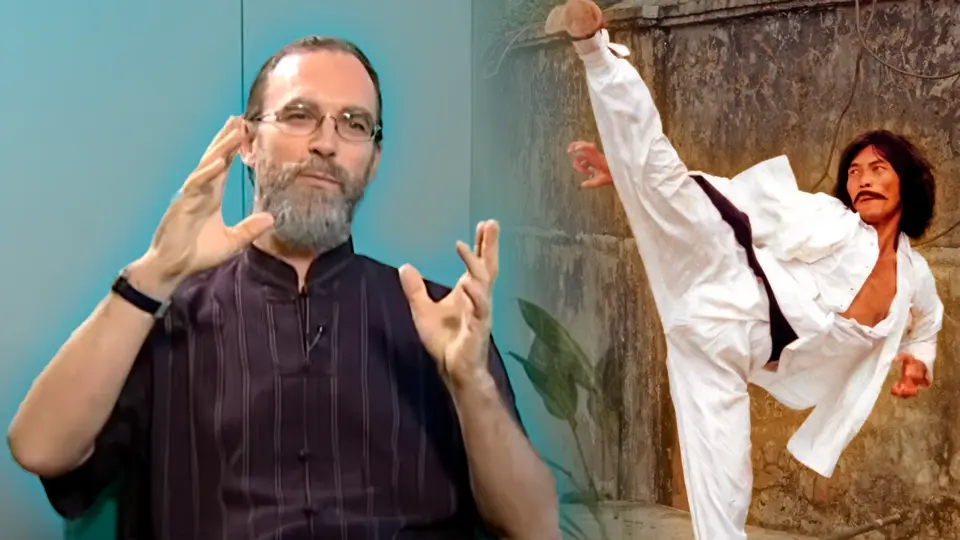
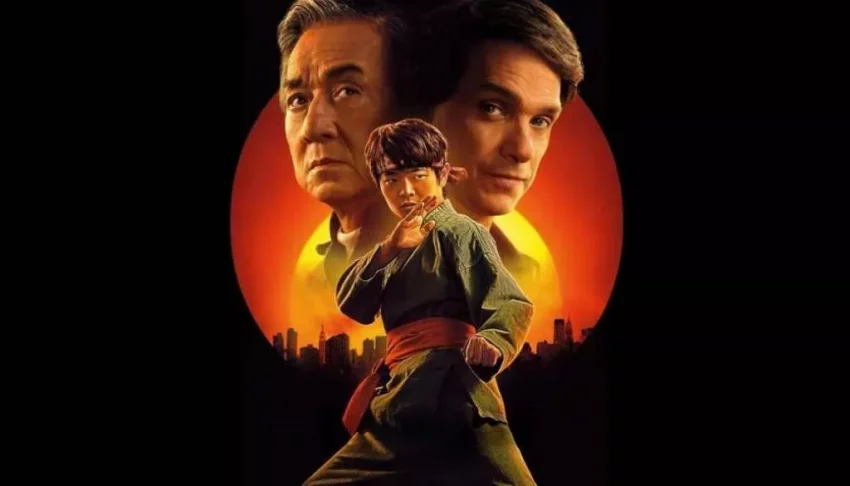
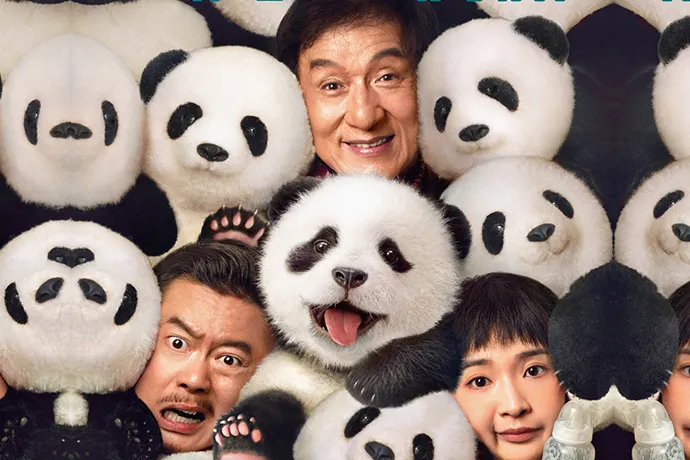
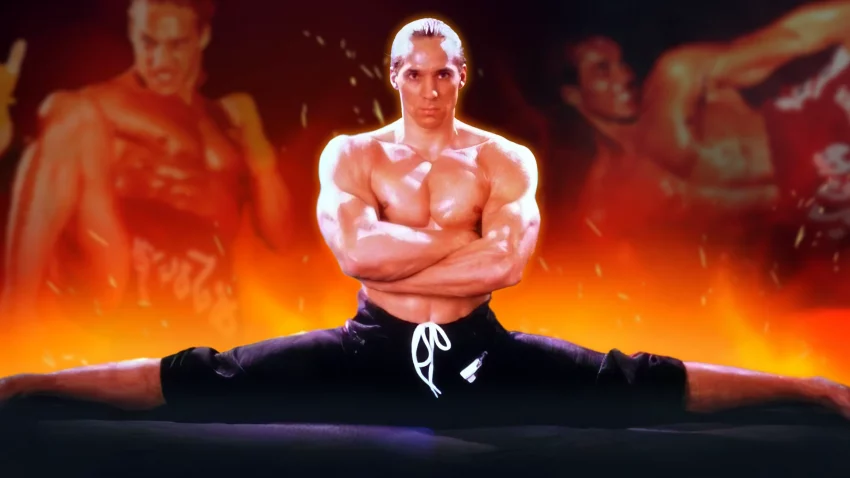
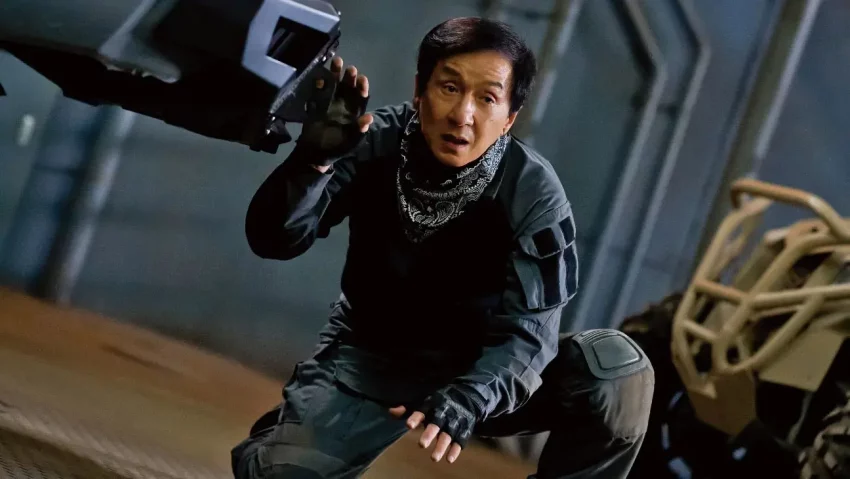
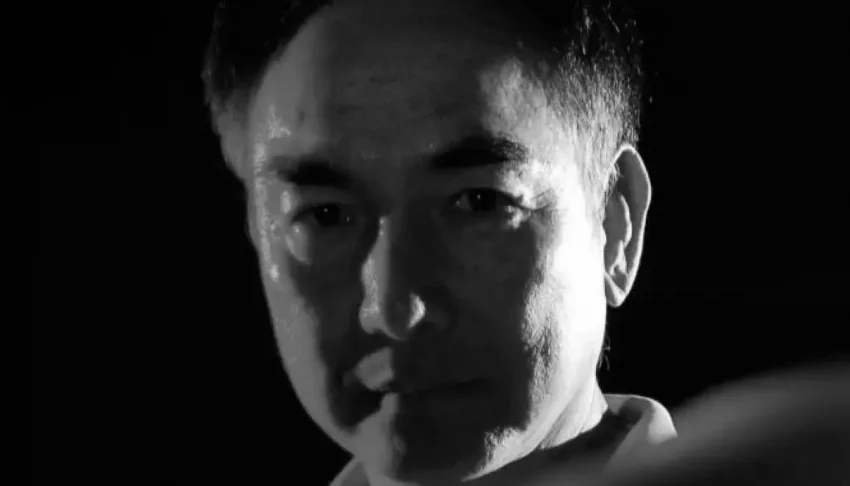
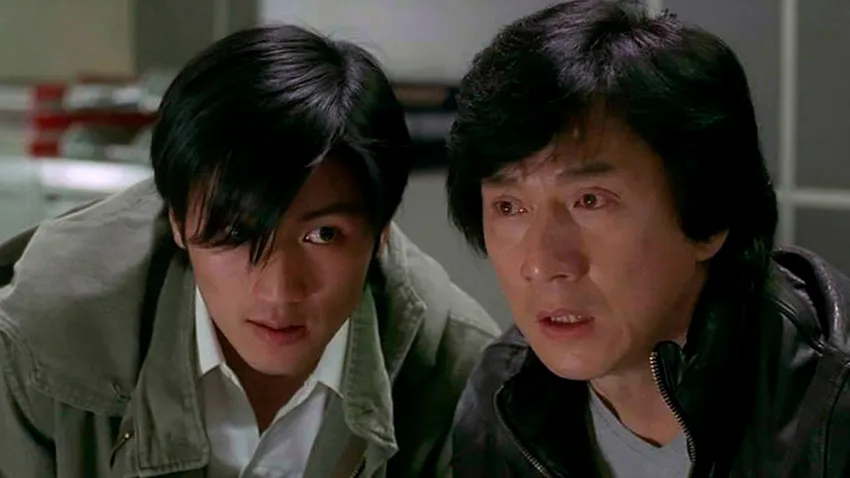
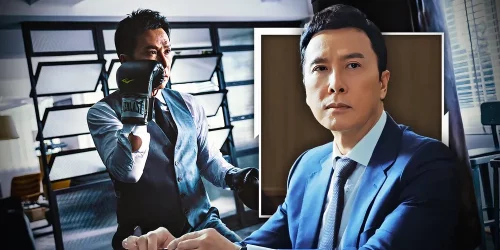
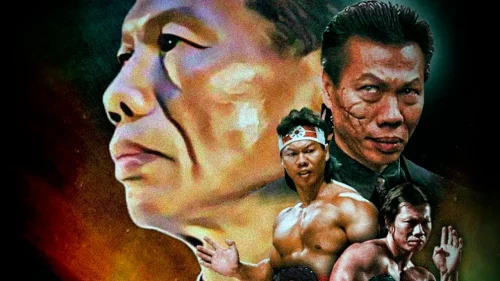
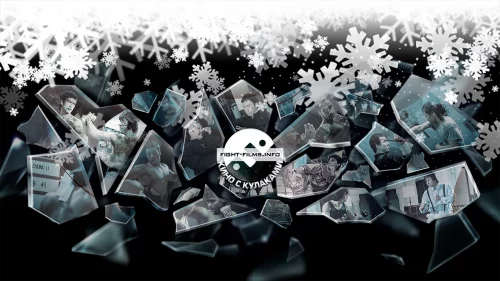
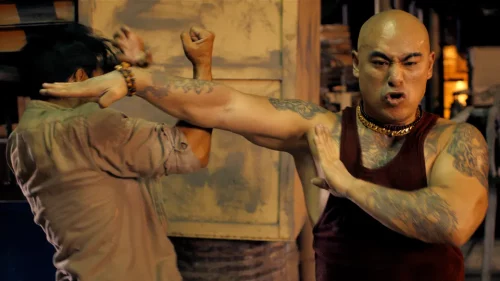
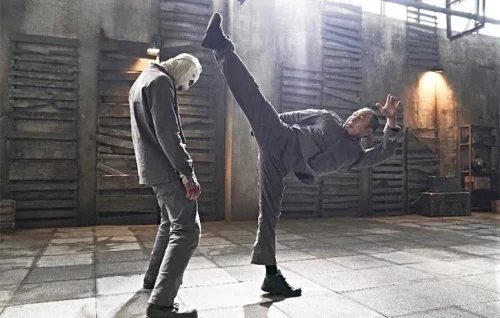
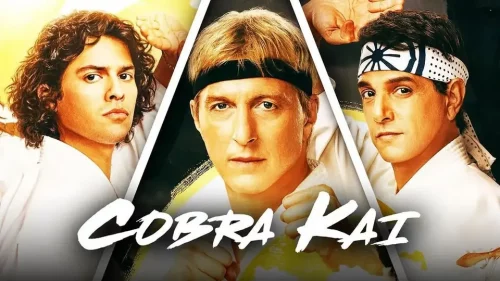
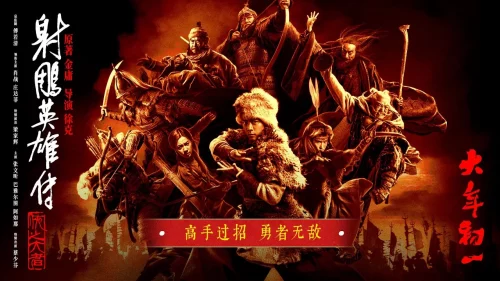
Неплохое интервью.